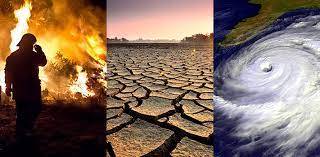
In a recent report published by The Guardian, a promising development emerged on the global environmental stage. Deforestation rates in Brazil dropped by a significant 33.6% during the first six months of President Luiz Inácio Lula da Silva's term. This positive shift marks a stark contrast to the mass deforestation that occurred under the previous administration of Jair Bolsonaro. Lula's commitment to reining in illegal logging and reversing environmental devastation has yielded encouraging results. However, as the world battles with escalating climate change concerns, the question remains: are these actions sufficient to counter the broader environmental challenges?
Upon assuming office, President Lula da Silva vowed to tackle the rampant deforestation that plagued Brazil during the Bolsonaro administration. Bolstering environmental conservation efforts became a focal point of Lula's presidency. João Paulo Capobianco, the environment ministry’s executive secretary, confirmed in a presentation that the government had successfully reversed the troubling trend of deforestation. This encouraging news not only signifies a positive stride for Brazil's environmental landscape but also sends a message of hope to the global community.
The decline in deforestation rates is a significant step in the right direction. The reduction of 33.6% within a short span of time showcases the impact of effective policies and governance. Lula's efforts signal a renewed commitment to safeguarding Brazil's invaluable rainforests and the biodiversity they host. By taking a strong stance against illegal logging, the administration aims to protect the delicate balance of ecosystems, promote sustainable land use, and conserve vital habitats.
Despite the encouraging news from Brazil, the broader global environmental landscape remains deeply concerning. The United Nations has continuously emphasized the urgency of addressing climate change, as escalating temperatures, extreme weather events, and environmental degradation pose severe threats to the planet's future. Secretary-General António Guterres has stressed that delaying crucial measures could lead to a catastrophic situation. Recent temperature records serve as a stark reminder of the urgency of tackling climate change.
Recent unofficial analyses have indicated that global temperature records were broken on consecutive days. The average global air temperature reached a new high of 17.18°C (62.9°F) on Tuesday, surpassing the previous record of 17.01°C set just a day prior. These record-breaking temperatures, as reported by the US National Centers for Environmental Prediction (NCEP) and the University of Maine's Climate Reanalyzer, underscore the pressing need for immediate and collaborative action to mitigate climate change's dire consequences.
